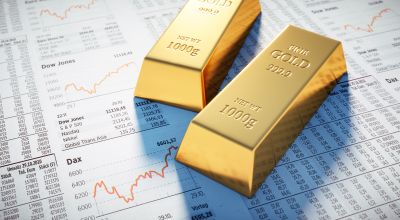5 Common Types of ETFs

There is so much to learn in the world of finance. Investing may seem complicated and only for the rich and powerful. But recent developments make trading easier via helpful investment tools.
An ETF is one of them. Exchange-traded funds – also known as ETFs – are sold like stocks and considered passive investments since there is no need for an investment manager to decide if a particular stock stays or goes.
Most markets have low-cost access, which allows investors to acquire a more effective portfolio for their needs. And the best part about it is that ETFs cover all markets.
If you are interested in a specific sector, all you need to do is research, and you are most likely to find one. A lot of stockholders invest in particular types of ETFs, the most common of which are listed below.
#1 Fixed-Income Funds
According to constructionbond.ca, when you hear about fixed-income securities, bond ETFs, Treasuries, government, and corporate bonds come to mind. Fixed-income funds invest exclusively in bonds and bonds alone.
If we compare it to mutual funds and individual bonds, it is more liquid because you do trading throughout the day. Bonds will diminish the volatility of the portfolio of an investor.
#2 Industry Sector ETFs
The main benefit of sector ETFs is that you can invest in an entire industry, for example, if you think the europa etf sinnvoll, then you could start looking at the different ETF options from different European countries.
Specific industries such as chemicals, health care, and energy have this type of exchange-traded fund. Experience shows that the most volatile sector is the technology industry, with the utility segment as less unstable.
Since this is one of the most fluctuating of all the types of ETFs, investment timing and portfolio management strategy are essential, mainly because prices tend to drop fast. If you want to find the right ETF’s check out the bestes ETF Depot.
#3 Real Estate Funds
Also known as real estate investment trusts (REITs), this type of ETF is attractive to the investor who goes for high-risk ventures.
Though highly volatile, the fund yield is an alluring factor because it pays the shareholders around 90% of taxable income. Meager inflation and short-term interest rates become a good income sources.
#4 Commodity Funds
What are commodities? These are natural resources or agricultural products such as cattle, wheat, corn, coal, valuable metals, natural gas, oil, and water.
There is no need to buy said goods should you decide to invest. You can call a broker or your ETF Company to buy it for you; this type of ETF focuses on either one or a host of other commodities.
#5 Currency Exchange-Traded Funds
These ETFs increase the diversification of your portfolio and allows your exposure to currency markets. Currency ETFs give investors access to domestic currency, foreign investments, and developing markets.
It can hedge against the usual currency risks. The ETFs also speculate on foreign exchange markets by tracking the most significant global currencies around the globe.
Among all the types of exchange-traded funds, this is the most volatile of all. The everyday events of a particular country have an impact on currency movements. An interest rate hike, a political revolution, and a slow-moving economy are factors that influence these actions.
Investing is always a risk. It is best still to research trade trends, calculate your rate of return, recognize all threats, and know how to manage your money to avoid possible investment heartbreak.





